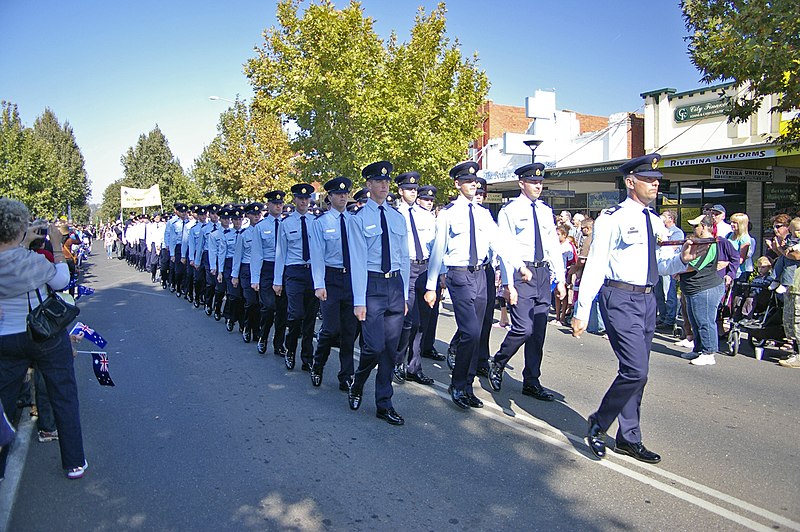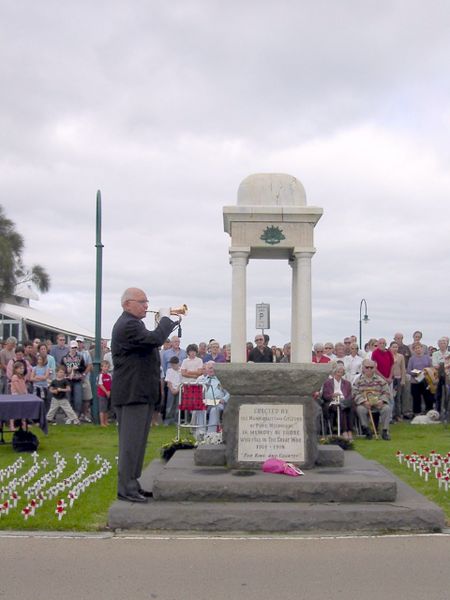Tens of thousands of people have turned out to watch serving and ex-serving personnel taking part in Anzac Day marches.
Anzac Day is a national day of remembrance in Australia and New Zealand, and is commemorated by both countries on 25 April every year to honour members of the Australian and New Zealand Army Corps (ANZAC) who fought at Gallipoli in Turkey during World War I. It now more broadly commemorates all those who died and served in military operations for their countries.
On 30 April 1915, when the first news of the landing reached New Zealand, a half-day holiday was declared and impromptu services were held. The following year a public holiday was gazetted (i.e., officially declared) on 5 April and services to commemorate were organised by the returned servicemen.
The date, 25 April, was officially named Anzac Day in 1916. In that year it was marked by a wide variety of ceremonies and services in Australia and New Zealand. During the 1920s, Anzac Day became established as a National Day of Commemoration for the 60,000 Australians and 18,000 New Zealanders who died during the war.
Anzac Day at Manly, Brisbane, Australia, 1922
The first year in which all the Australian states observed some form of public holiday together on Anzac Day was 1927. By the mid-1930s, all the rituals now associated with the day — dawn vigils, marches, memorial services, reunions — became part of Australian Anzac Day culture. New Zealand commemorations also adopted many of these rituals, with the dawn service being introduced from Australia in 1939.
With the coming of the Second World War, Anzac Day became a day on which to commemorate the lives of Australians and New Zealanders lost in that war as well and in subsequent years. The meaning of the day has been further broadened to include those killed in all the military operations in which the countries have been involved.
A large commemoration march in Wagga Wagga, New South Wales, (April 2008)
The Last Post is played at an Anzac Day ceremony in Port Melbourne, Victoria, 25 April 2005.
The first official dawn service was held at the Sydney Cenotaph in 1927.
Dawn services were originally very simple and followed the operational ritual; in many cases they were restricted to veterans only. The daytime ceremony was for families and other well-wishers and the dawn service was for returned soldiers to remember and reflect among the comrades with whom they shared a special bond.
The wreath laying at the 2008 dawn service at the Australian War Memorial at Hyde Park Corner, London
Before dawn the gathered veterans would be ordered to "stand-to" and two minutes of silence would follow. At the start of this time a lone bugler would play "The Last Post" and then concluded the service with "Reveille". In more recent times the families and young people have been encouraged to take part in dawn services, and services in Australian capital cities have seen some of the largest turnouts ever. Reflecting this change, the ceremonies have become more elaborate, incorporating hymns, readings, pipers and rifle volleys. Others, though, have retained the simple format of the dawn stand-to, familiar to so many soldiers.
The "Ode of Remembrance"
They went with songs to the battle, they were young.
Straight of limb, true of eyes, steady and aglow.
They were staunch to the end against odds uncounted,
They fell with their faces to the foe.
They shall grow not old, as we that are left grow old:
Age shall not weary them, nor the years condemn.
At the going down of the sun and in the morning,
We will remember them.
Lest we forget!
(The "Ode of Remembrance" is an ode taken from Laurence Binyon's poem "For the Fallen", which was first published in The Times in September 1914.)






1 comment:
Lest we forget, indeed.
God bless all of them.
Post a Comment